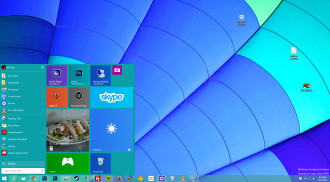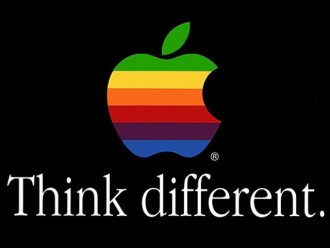Tag: apple
Apple invented Microsoft’s Kinect
 According to the US Patent and Trademark Office (PTO) the fruity cargo cult Apple invented Microsoft’s Kinect.
According to the US Patent and Trademark Office (PTO) the fruity cargo cult Apple invented Microsoft’s Kinect.
The US PTO granted Apple a patent which is so wide you can drive a bus through it sideways. Patent number 8,933,876 covers a “three dimensional user interface session control.”
When Apple bought PrimeSense last year to get its foot in the door of the gesture-control space. Since then, all of PrimeSense’s patents have been reassigned to Apple.
But before it was bought by Apple, PrimeSense developed the Kinect for Microsoft, which made it a central part of its Xbox 360 and Xbox One consoles. While the technology is good, it failed to make much impact. There was never a killer app for the Kinect.
The thought is that Apple could do the same thing with the technology that it did with the Tablet – waive it in front of its fanboys and claim it invented it.
But what is worrying is that not only has the PTO given Apple a patent for technology it did not invent, it is far too broad. The patent can be read so any gesture that can be detected by an optical or infrared controller that does anything to an interface is now owned by Apple. It is just as well that Apple is not the sort of company to stifle innovation by patent trolling its rivals…
Apple takes on Ericsson in phone row
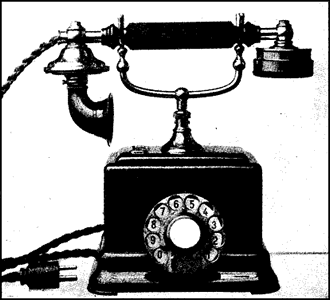 Fruity cargo cult Apple has sued the Swedish phone outfit Ericsson in an attempt to break the patent deadlock between the pair.
Fruity cargo cult Apple has sued the Swedish phone outfit Ericsson in an attempt to break the patent deadlock between the pair.
Apple said that Ericsson’s LTE wireless technology patents are not essential to industry mobile standards and that it is demanding excessive royalties for them.
Jobs’ Mob insists that it has not infringed on the patents and does not owe Ericsson a cent for them.
Ericcson wants cash for the LTE technology calculated as a percentage of the price of the entire smartphone or tablet. However, Apple said that the royalties should be based on the value of the processor chip that includes the technology.
If Ericsson’s patents are deemed essential and the court rules Apple has infringed on them, Apple said it wants the court to assign a reasonable royalty rate.
Apple spokeswoman Kristin Huguet said that Apple was always willing to pay a fair price to secure the rights to standards essential patents covering technology in its products. However Apple can’t agree with Ericsson on a fair rate for their patents so, as a last resort, we are asking the courts for help.
Apple and Ericsson currently have a license agreement that covers many of Ericsson’s allegedly standard-essential patents. The agreement was signed in 2008 soon after Apple launched the iPhone, according to the court filing.
12-inch Macbook Air ready to roll
Apple defective motherboard case temporarily thrown out
 Lawyers from Apple are celebrating after they managed to convince a judge to throw out a case which accused it of defrauding consumers by selling MacBook laptop computers that contained “logic boards” it knew were defective, and which routinely failed within two years.
Lawyers from Apple are celebrating after they managed to convince a judge to throw out a case which accused it of defrauding consumers by selling MacBook laptop computers that contained “logic boards” it knew were defective, and which routinely failed within two years.
US District Judge William Alsup in San Francisco said the plaintiffs, Uriel Marcus and Benedict Verceles, failed to show that Apple made “affirmative misrepresentations,” despite citing online complaints and Apple marketing statements calling the laptops “state of the art” or the “most advanced” on the market.
“Plaintiffs have failed to allege that Apple’s logic boards were unfit for their ordinary purposes or lacked a minimal level of quality,” Alsup wrote. “Both plaintiffs were able to adequately use their computers for approximately 18 months and two years, respectively.”
However, Alsup did not chuck out the case completely. He gave the plaintiffs until January 22 to amend their lawsuit, which sought class-action status. It is not clear how they are going to proceed next.
The plaintiffs claimed that Apple’s sale of MacBooks since May 20, 2010, violated consumer protection laws in California and Texas, where the lawsuit began last May before being moved.
Apple Chief Executive Tim Cook was told about the defective logic boards in 2011, but did nothing.
A separate and still pending lawsuit in California accuses Apple of defrauding consumers by selling MacBook Pro laptops in 2011 that contained defective graphic cards, causing screen distortions and system failures. Still you get what you pay for.
Apple hikes prices in Europe
Apple to make bending a feature
 After it released its iPhone 6 which bent in your pocket, the more cynical amongst us thought that Apple might try to make this a “feature”.
After it released its iPhone 6 which bent in your pocket, the more cynical amongst us thought that Apple might try to make this a “feature”.
Sure enough Apple has won a patent for flexible display tech that allows for layering of components like microphones or speakers
Flexible displays, in and of themselves, are nothing new. What makes this patent different is that it includes support for components — like buttons, microphones, or speakers — that can be mounted around the display and work through it.
So in other words when the phone bends everything else bends with it – exactly the effect when you put a bad structurally designed phone in your skinny jeans and the whole thing bends.
What appears to have happened is that Apple did not just make its bending on its iPhones a feature, it actually took out a patent on it.
According to Patently Apple this flexible display is capable of being bent and acting as a pass-through device that can handle a wide range of functionalities.
Apple envisions people bending or in some way manipulating the screen to touch a button activator below its surface.
By deforming that specific portion of the display, the activity associated with the button would be created. In another example, the flexibility of the display would create a porous layer that would allow for sound waves to pass through. Therefore, speakers and microphones and other components could sit under a screen and work as they do now.
Actually, it does appear that using this technology Apple could build a phone which is all-screen or nearly all-screen in design which will mean the death of the home button.
Apple iWatch to arrive in March
Monster sues Apple over missing a Beats
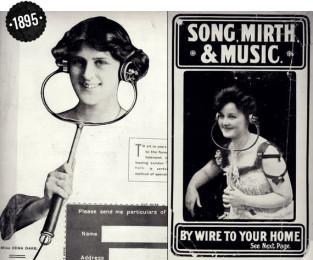 The maker of $1,800 wires Monster has sued Apple over alleged “fraud and deceit” in the way that its new subsidiary Beats acquired control of the rights to the popular “Beats by Dr. Dre” headphones.
The maker of $1,800 wires Monster has sued Apple over alleged “fraud and deceit” in the way that its new subsidiary Beats acquired control of the rights to the popular “Beats by Dr. Dre” headphones.
In May 2014, Beats was bought by Apple, but under a partnership formed in 2008, Monster and Beats developed “Beats by Dr. Dre,” a line of colourful, high-end headphones that vie with the likes of Skullcandy and Bose.
Monster engineered the headphones and was unfairly cut out before Beats was sold to Apple last year, it is alleged.
The complaint names Beats co-founders Jimmy Iovine and Dr. Dre as well as HTC as defendants.
The complaint said that the defendants, who still work for Apple, fraudulently acquired Monster’s “Beats By Dr. Dre” product line including all development, engineering, manufacturing, marketing, distributing and retail rights, via a “sham” transaction with HTC.
Apparently, in 2011, HTC said it would buy a 51 percent stake in Beats for $309 million. Beats bought back half of HTC’s interest in the company soon after the transaction, the complaint complained.
The defendants used the change of control as an excuse to end its relationship with Monster in 2012, while it made millions off the work of Lee and Monster.
Iovine and Dr. Dre then “improperly erased” Monster and Monster’s founder Noel Lee from Beats’ history.
Nvidia and AMD stuffed by TSMC’s Apple friendship
 Nvidia and AMD have had their move to 16nm and 20nm designs hampered by the limited capacity of both nodes at manufacturer TSMC.
Nvidia and AMD have had their move to 16nm and 20nm designs hampered by the limited capacity of both nodes at manufacturer TSMC.
According to WCCFTech.com, AMD GPUs are made by TSMC as are Nvidia’s chips. But it looks like all TSMC’s capacity has been sucked up by Apple and Samsung.
This is hard on Nvidia which already had to make the chips in its GTX 980 and 970 cards, using the 28nm process instead of the 20nm it wanted. Nvidia thought it was better to skip 20nm and go straight to 16nm for future designs.
AMD wanted to drop from 28nm to 20nm for its new GPUs but hit the same capacity issue which stuffed up the delivery of AMD’s 20nm R9 300 series graphics cards. We expected these in February and March of this year but now they are at least two months behind.
AMD’s Senior Vice President and Chief Technology Officer Mark Papermaster has warned that there would be 20nm and 28nm products in 2015 but no 14nm or 16nm products until 2016.
And the reason is because Apple’s 16nm A9 chip, which is being made by TSMC has priority and what is left is being taken by Samsung which outsources a lot of work to TSMC.
AMD and Nvidia are stuffed. The only other manufacturer with spare 14nm capacity is Intel and it is not very likely that Intel will sell capacity to its rivals.
What this means then is that the world is not getting cutting edge GPU technology from the two top vendors because Apple has a huge control of TSMC and Intel is Intel.
Apple fanboy recants to inquistion after criticism
 Apple fanboy Marco Arment has said that he has extreme regrets for daring to post in his blog that Apple software had dropped down the toilet.
Apple fanboy Marco Arment has said that he has extreme regrets for daring to post in his blog that Apple software had dropped down the toilet.
Arment is a web and iPhone software developer, writer, and podcaster and his comments seemed fair enough. While Apple hardware is the best it has been, the software has fallen behind, he said.
Armet’s comments included lines like: “ We now need to treat Apple’s OS and application releases with the same extreme scepticism and trepidation that conservative Windows IT departments employ.”
He said that he suspected the rapid decline of Apple’s software is a sign that marketing is too high a priority at Apple today. Having major new releases every year is clearly impossible for the engineering teams to keep up with while maintaining quality, he said.
This morning Arment posted that he regretted his original comment because he claimed his words had been chopped up and twisted by those who thought Apple was doomed.
“I started it with the headline and many poor word choices, which were overly harsh and extreme. I was being much nastier and more alarmist than I intended. I edited some words to be more fair and accurate, but it was too late. I can’t blame the opportunists for taking the bait that I hastily left for them,” Arment said.
However, Arment said that he felt embarrassment and guilt for criticising the company which had changed his life.
“Instead of what was intended to be constructive criticism of the most influential company in my life, I handed the press more poorly written fuel to hamfistedly stab Apple with my name and reputation behind it. And my name will be on that forever,” he wrote.
But what is interesting is that while Arment feels guilty, he has not retracted what he said about Apple software – simply that he regretted saying it. He complains that his comments pushed him into the limelight and gave ammunition to those who might wish the company harm.
Chinese phone company revenues soar
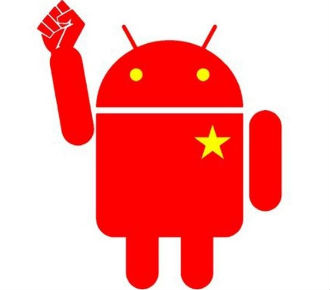 Xiaomi Technology, which is beginning to challenge smartphone players including Samsung and Apple, turned over close to $12 billion in 2014, according to its CEO.
Xiaomi Technology, which is beginning to challenge smartphone players including Samsung and Apple, turned over close to $12 billion in 2014, according to its CEO.
Reuters begins iWatch adverts
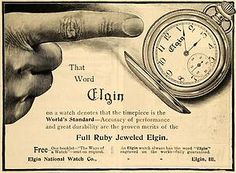 The once legendary news agency Reuters has begun hawking Apple’s up and coming toy watch, which is being delivered two years behind the competition, and without any killer apps.
The once legendary news agency Reuters has begun hawking Apple’s up and coming toy watch, which is being delivered two years behind the competition, and without any killer apps.
Reuters ran a story this morning saying that “Apple’s forthcoming smartwatch poses a conundrum for advertisers: How to tap the enticing possibilities of the tiny gadget without overwhelming consumers with messages.”
Is it? Well not really. Some company mobile-marketing firm TapSense plans to release an Apple Watch ad-buying service at CeBit and since there is no way that Reuters can write a positive iWatch story this week it has had to run with this one.
According to Reuters: “The service will provide a first glimpse of how businesses can serve up ads on the watch, even though the gadget will not be available until later this year.”
Surely that is only a problem if the iWatch was “ground-breaking, new technology” which had not already been in the market place for two years and been greeted by a loud sounding yawn by the rest of the world.
But Reuters warns the same qualities that render the watch exciting to Madison Avenue, such as the ability to detect customers approaching a store and to zap an ad directly to their wrists, also risk alienating those customers.
Is it? The iPhone has been around for years and it has never used that sort of technology. Instead what TapSense seem to be selling are interactive wallpapers on the watch dial with brand logos and personalised clock faces.
The watch’s main screen allows the display of several tiny icons, including for email, weather, time, and potentially a few favourite service and retail apps.
The start-up is exploring using Apple Watch’s location-based features to target new customers. Apple has not added global positioning on the Apple Watch, but apps can track location as the device is tethered to a smartphone.
Reuters admits that it is not clear if the iWatch will create a new mass-market category, Venture capitalist Fred Wilson caused a stir last week by predicting the watch “will not be the home run product that iPod, iPhone, and iPad have been”.
But with the mainstream press pushing non-stories to the great unwashed about the vapourware, it does have a chance of selling more than its rivals.
Why you need to put a MacBook in the oven
 For a long time I have been suggesting that a hammer is the best cure for all things which emerge from the Apple Cargo Cult, but it turns out that I might have been wrong and it is better to put them in the oven.
For a long time I have been suggesting that a hammer is the best cure for all things which emerge from the Apple Cargo Cult, but it turns out that I might have been wrong and it is better to put them in the oven.
Sterling over at iFixIT was having huge problems with heating problems on his MacBook Pro. Apparently, the geniuses at Apple decided that people would pay more money for a laptop which sets your groin on fire.
While most Apple fans are happy to live with this poor state of design rather than get a real computer that works, Sterling spent the weekend trying to improve on Apple’s design instead. Now since this is considered heresy in the Apple world, where you are not even allowed to replace a battery without permission from Steve Jobs without voiding your warranty, it is fairly clear that Sterling did not care. On an average day, his laptop hovered between 80 and 90ºC. One time he saw it climb as high as 102 C which was hot enough to make a nice cup of tea. Apple fanboys would tell you that this is an additional feature.
In March, in living proof that you get what you pay for, it died and his novel answer was to reflow it. This involved heating it up until the balls of solder melt back into their assigned spots.
He disconnected all eleven connectors and three heat sinks from the logic board, and turned the oven up to 340º F. He baked it for seven minutes.
After it cooled, he reapplied thermal paste, put it all back together, and cheered when it booted. It ran great for the next eight months.
Then, two weeks ago, it died again so he rebaked it and it ran again.
Smartphone brands cleared by Taiwan’s watchdog
 Tawian’s watchdogs have cleared China’s Xiaomi and other smartphone brands of breaching data protection laws after national security concerns triggered a government probe.
Tawian’s watchdogs have cleared China’s Xiaomi and other smartphone brands of breaching data protection laws after national security concerns triggered a government probe.
The National Communications Commission said all the 12 brands it had tested, which also included handsets sold by Apple, Samsung, LG and Sony , did not violate the laws.
James Lou, an NCC official who was involved in the testing, said the commission, however, would request mobile phone makers make information transmission more secure.
The probe was started over concerns that the Chinese handset makers Huawei and ZTE were being used as snooping tools by the Chinese.
Taiwan is a bit sensitive to security matters involving China, which is its largest trading partner, but has never renounced the use of force to take back what it deems a renegade province.
Xiaomi, whose budget smartphones are popular throughout Asia, was previously accused of breaching data privacy. In August, the company said sorry and changed a default feature after a Finnish security company said Xiaomi collected address book data without users’ permission.
Taiwan’s government began performing independent tests on Xiaomi phones after media reports said that some models automatically send user data back to the firm’s servers in mainland China.
The probe was then widened to include local and foreign handsets. The NCC report said handsets made by HTC Corp, Asustek, Far EasTone, Taiwan Mobile and InFocus Corp, whose handsets are made by Taiwan’s Hon Hai Precision Industry were also cleared of breaching the data protection laws.
